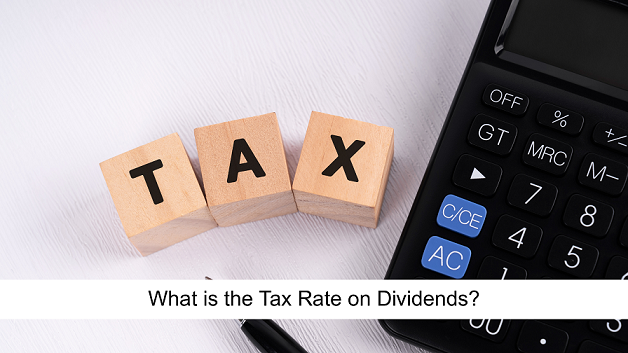
The tax rate on dividends for 2025/26 depends on your total income and the amount of dividends you receive. You get a tax-free dividend allowance of £500, meaning you pay no tax on dividends up to this amount.
Beyond that, dividends are taxed at rates of 8.75%, 33.75%, or 39.35%, depending on your income tax band. This blog explains how dividend tax works and outlines the applicable tax rates.
Dividends are payments you receive when you own shares in a company. These payments come from the profits the company makes. It is a way for companies to share their success with their shareholders.
However, not all companies pay dividends. Some businesses prefer to keep their profits and invest them back into the company to help it grow instead of paying money out to shareholders.
Yes, most dividends you receive are taxable. However, you get a small tax-free amount each year called the dividend allowance. This means you can earn up to a certain limit in dividends without paying any tax. Any dividend income above this allowance will be taxed.
When it comes to dividends, there is a certain amount you can earn without paying any tax. This tax-free amount includes your dividend allowance plus your allowance, which applies to all types of income.
After your tax-free allowances, dividends are taxed at different rates depending on your total income. These are called dividend rates of tax:
|
Your Total Income |
Tax Band |
Dividend Tax Rate |
|
Up to £12,570 |
Personal Allowance |
0% |
|
£12,571 to £50,270 |
Basic Rate |
8.75% |
|
£50,271 to £125,140 |
Higher Rate |
33.75% |
|
Over £125,140 |
Additional Rate |
39.35% |
You MUST pay tax on dividends above these tax-free amounts at these rates.
For the tax year 2025/26, our government has set a specific amount called the dividend allowance. This allowance lets you earn a certain amount in dividends without having to pay any tax on it.
Here are the points about the dividend allowance for 2025/26:
Dividends play a role in determining your overall taxable income. It’s important to understand how dividend income affects your tax band and when tax becomes due.
Understanding how dividend tax works is important to managing your income and avoiding surprises. There are some key facts about dividend taxability that everyone should know.
Understanding the tax rate on dividends is essential for making smart financial decisions. You benefit from a tax-free dividend allowance of £500, but any dividends above this allowance are taxed based on your income level. Knowing how dividends affect your total taxable income and the rates that apply can help you plan better and avoid unexpected tax bills.
Always keep track of your dividend income and report it correctly to HMRC. Staying informed about dividend tax rules ensures you make the most of your investments and keep more of what you earn.
Managing your dividend tax can be complex, but PHS Associates is here to help. Our expert tax services ensure your dividend income is correctly reported and you take full advantage of the tax-free allowances available for 2025/26.
If you need reliable help with any questions about the tax rate on dividends or dividend tax allowance, contact PHS Associates at 0208 8611685 or email info@phs-uk.co.uk. We make understanding and managing your dividend tax simple and stress-free.